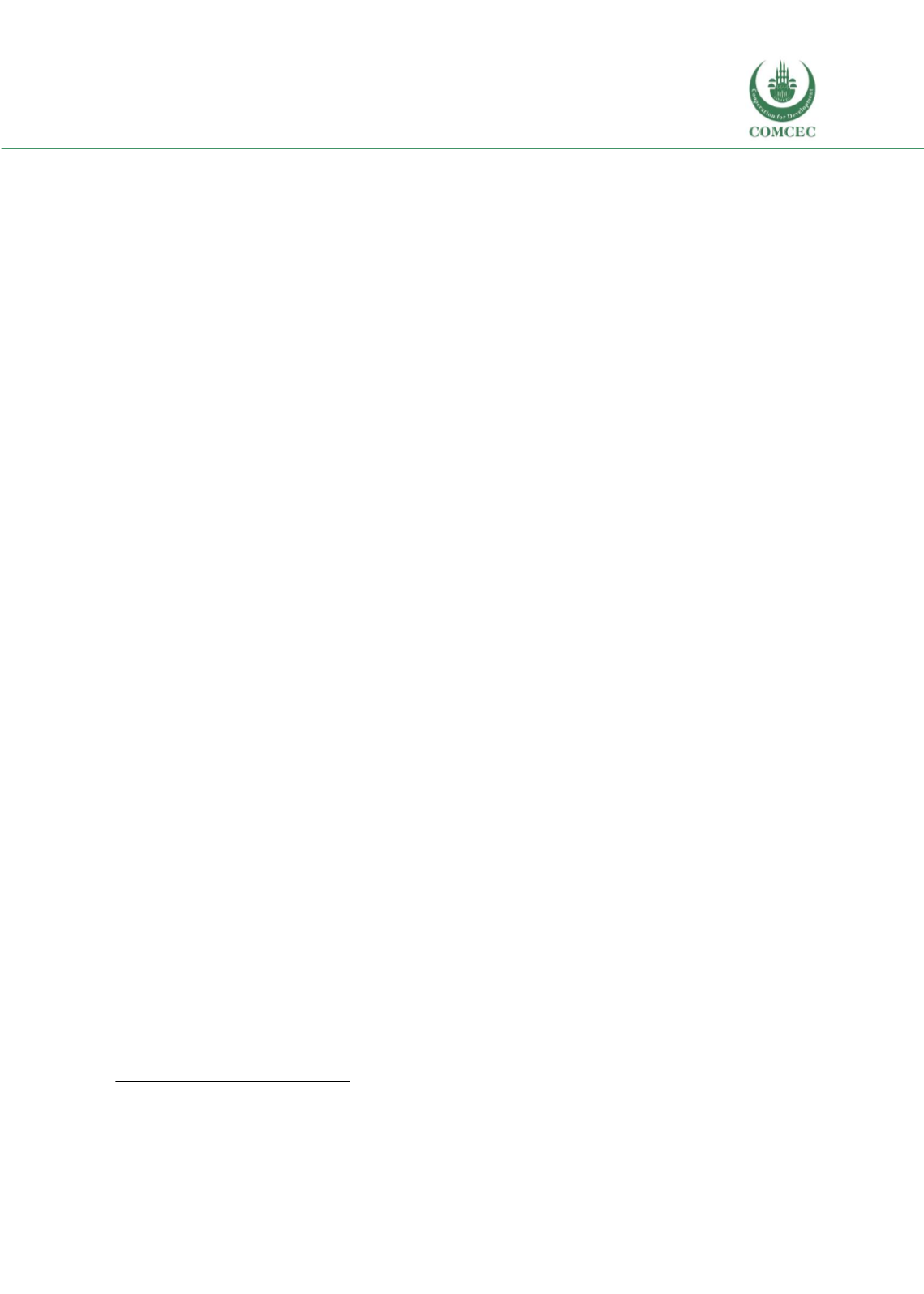

Education of Disadvantaged Children in OIC:
The Key to Escape from Poverty
151
Continued expansion of Makanis, with their more flexible learning schedules, would support
reaching male students who had to drop out of formal schools due to child labour demands.
Expansion and strengthening of relevance of vocational training would also help retainmore male
students in higher grades.
Adolescent and youth. Even though access to schooling is an issue at the secondary level, many
of the education initiatives are geared towards younger children (younger vulnerable Jordanians
and younger refugees), with lesser focus on adolescents407. This is particularly true for refugees.
While there are some projects geared towards adolescents and youth (e.g. Makani), the challenge
lies in the lack of overall inter-agency coordination and holistic approach to education, protection,
health and livelihoods, leading to a patchy response to the needs of this group. Unchecked, young
people may turn to negative coping mechanisms (e.g. child labour, early marriage) but also
increase the risk of recruitment to armed groups among Syrian refugees408. Improved overall
quality of secondary schools (including lowered violence) and offering quality alternative
pathways (vocational and non-formal) should be an imperative priority of education policies and
projects.
Policies toaddressDisability
Disability is an obstacle to access to schools but building and implementing all the components
needed to supply a true inclusive education is particularly difficult in an environment that is
already stretched for resources. Nonetheless, given their particular high vulnerability,
government and international organisations and NGOs should increase their existing efforts. A
first step in programming for such projects would be to obtain data in order to support evidence-
based policies and projects.
Policies toaddress language or includeminorities
Arabic is the language of instruction and the language spoken at home by most Jordanians – as
such there is not a pressing need (unlike other countries) for policies to align language of
instructions with language spoken at home for improved learning. Even Dom children, while
disadvantaged for many reasons listed earlier, speak/understand Arabic. However, given
differences in accents and students coming from a different educational system, a special training
should be provided for teachers to help them cope with large class sizes and methods to support
the transition of refugee students into the Jordanian curriculum. Continued expansion of Makanis
to reach out to vulnerable communities may provide extra learning support for Dom and refugees
to adapt to the learning goals of a different education system.
Policies toaddress FailingSystems (Governance, Financing, Quality)
One of the main challenges highlighted in the report is the need to reform the governance
structures in place towards increased accountability by moving to performance-based
management across the board. This is true for school-based management but also for the overall
407
Christophersen (2015)
408
Christophersen (2015)
















